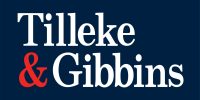In recent years, Thailand has taken significant steps to regulate and integrate digital assets into its financial ecosystem. This article explores the regulatory framework governing digital asset businesses in Thailand, focusing on the key legislation, regulated activities, and recent developments in this rapidly evolving sector.
Regulatory Environment
In 2018, Thailand enacted the Emergency Decree on Digital Asset Businesses, marking a pivotal moment in the country’s approach to cryptocurrencies and digital tokens. This decree, supervised by the Securities and Exchange Commission (SEC) and the Ministry of Finance, provides a comprehensive regulatory framework for both the primary and secondary markets of digital assets.
For the primary market, the decree regulates the issuance and sale of digital assets through initial coin offerings (ICOs). A key feature of this regulation is the requirement for ICOs to be conducted through SEC-approved ICO portals. This approach aims to provide a structured and supervised environment for companies seeking to raise funds through digital token sales.
In the secondary market, the decree outlines the regulatory framework for various digital asset intermediaries, including digital asset exchanges, brokers, dealers, advisory services, fund managers, and custodians.
In implementing its digital asset-related policies, the SEC imposes ongoing obligations on licensed digital asset intermediaries. These include restrictions on the listing of certain digital assets on digital asset exchanges, and limitations on intermediaries facilitating digital assets as a means of payment.
Regulatory Trends and Outlook
The SEC has demonstrated a commitment to regularly revising its digital asset regulations to keep pace with global trends and market developments. A notable example of this approach is the SEC’s efforts to refine the classification of nonregulated ready-to-use utility tokens by dividing these tokens into two groups:
- Group 1: Ready-to-use utility tokens issued for consumption purposes or as a digital representation of a certificate (e.g., NFTs with specific rights for holders, carbon credit certificates).
- Group 2: Ready-to-use utility tokens not specified in Group 1 (e.g., native/governance tokens and exchange tokens) that the issuer has no intention of listing on digital asset exchanges in Thailand.
Another interesting potential development is the SEC’s proposed establishment of a regulatory sandbox specifically for digital asset businesses. This sandbox would allow participants to test their innovations within a controlled environment for up to one year, and participants would likely be exempt from digital asset business licensing requirements during their participation period.
Looking Ahead
Thailand’s approach to governing digital asset businesses in the country combines clear regulatory frameworks with an understanding that continuous updates are necessary to maintain support for advances in the market.
For businesses operating in or looking to enter the Thai digital asset space, staying informed about the latest regulatory updates and being prepared to adapt to new requirements can provide an important competitive advantage, potentially opening up new opportunities to participate in the digital asset ecosystem in Thailand.




